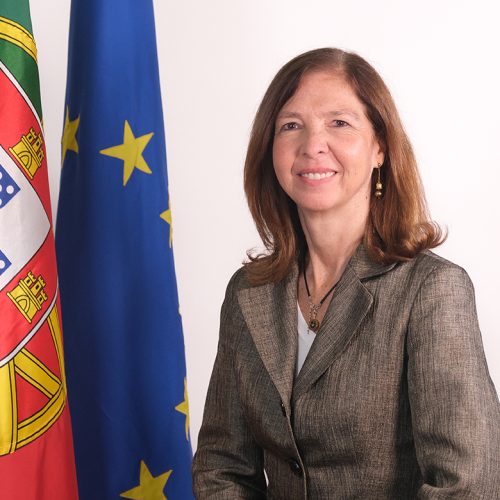Ana Paiva é Secretária de Estado da Ciência desde abril de 2024.
É Professora Catedrática no Instituto Superior Técnico (IST) da Universidade de Lisboa, onde criou o Grupo de Inteligência Artificial para as Pessoas e a Sociedade no INESC-ID. Licenciou-se em Engenharia Eletrotécnica e de Computadores pelo IST e obteve um doutoramento em IA aplicada à educação pela Universidade de Lancaster, no Reino Unido.
Foi eleita Fellow da Associação para o Avanço da Inteligência Artificial (AAAI) e foi membro do Conselho Global para a Inteligência Artificial e Robótica do Fórum Económico Mundial (WEF). É uma referência mundial na investigação de agentes inteligentes e robótica, e foi considerada pela “Women in Robotics Engineering and Science” como uma das 35 mulheres mais influentes na área. A sua investigação dedica-se ao desenvolvimento de agentes e robôs inteligentes que interagem e colaboram com humanos.
Em 2020, tornou-se Fellow no Radcliffe Institute for Advanced Study, da Universidade de Harvard e em 2023, foi Professora Visitante no Programa Wallenberg de IA, Sistemas Autónomos e Software, na Suécia.
Ana Paiva has been Secretary of State for Science since April 2024.
She is a Full Professor at the Instituto Superior Técnico (IST) of the University of Lisbon, where she created the Artificial Intelligence for People and Society Group at INESC-ID. She graduated in Electrical and Computer Engineering from IST and obtained a PhD in AI applied to education from Lancaster University in the UK.
She was elected a Fellow of the Association for the Advancement of Artificial Intelligence (AAAI). She was a member of the Global Council for Artificial Intelligence and Robotics of the World Economic Forum (WEF). She is a world reference in research into intelligent agents and robotics. She was considered by ‘Women in Robotics Engineering and Science’ to be one of the 35 most influential women in the field. Her research is dedicated to developing intelligent agents and robots that interact and collaborate with humans.
In 2020, she became a Fellow at the Radcliffe Institute for Advanced Study at Harvard University. In 2023, she was a Visiting Professor at the Wallenberg Programme for AI, Autonomous Systems and Software in Sweden.


